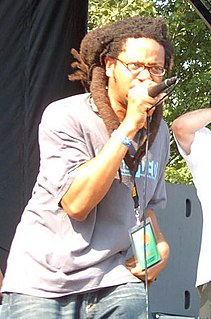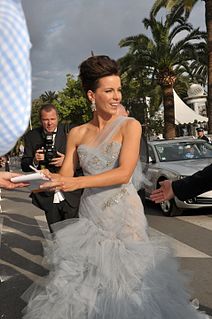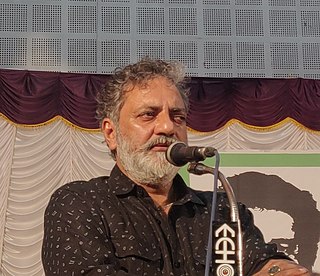A Quote by Nadine Gordimer
I believe - I know (there are not many things I should care to dogmatize about, on the subject of writing) that writers need solitude, and seek alienation of a kind every day of their working lives. (And remember, they are not even aware when and when not they are working.) ... The tension between standing apart and being fully involved; that is what makes a writer.
Related Quotes
As far as sometimes being involved with different demonstrations, I did an anti-war protest in San Fran in January, and I'm standing there, amongst all these people, and it's this great thing to see people being active and actually standing up for what they believe in and still letting the government know that there are people who will still sacrifice a portion of their day to stand up for what they care about, but I'm just thinking to myself, "God, man, these protests have been going on throughout I-don't-even-know-how-many years, and here we are again."
I'm working on a number of different things. I'm working on a couple of TV things and I'm working on a couple of film things too, and they're all very early stages. One of them I'm writing myself, one of them I'm writing with somebody else, and one of them I'm supervising a writer, and they're all sort of coming up at the same time and it'll be interesting to see which one kind of reveals itself first and jumps ahead.
In Britain, we need to start presenting the option of being a writer in front of black women. We need to present the idea of being a writer into poorer communities because the majority of black people in this country are working class. We need to let working-class people know that their voices are important.
If a writer of prose knows enough about what he is writing about he may omit things that he knows and the reader, if the writer is writing truly enough, will have a feeling of those things as strongly as though the writer had stated them. The dignity of movement of an iceberg is due to only one-eighth of it being above water. A writer who omits things because he does not know them only makes hollow places in his writing.
The plot is very important because writers have to play fair with their readers, but no one would care about the plot if the character work wasn't there. So, basically every book I work on starts with me thinking not just about the bad thing that's going to happen, but how that bad thing is going to ripple through the community, the family of the victim, and the lives of the investigators. I am keenly aware when I'm working that the crimes I am writing about have happened to real people. I take that very seriously.
Politics becomes a part of a writer's working life. The writer's protagonists are born in the context of the feelings that this atmosphere evokes. How can writers separate themselves from these feelings and create protagonists that come from Mars? Even writers who only write about psychological or internal issues or about love are writing under their prevailing atmosphere, and their writings will take on the hue of the time, place, and mood of their environment.
I've always kind of thought that reviews written by readers for readers are a kind of private space between consumers. It's their right to say anything they like about your material, and authors need to know that and respect that. As for my end, I'm aware of what my sales are, so I know that my books are working in the marketplace, at least for now, and beyond that, I have to just do my thing and stay focused.
At a certain point we need to grow up; we need to look inside ourselves for our inner guidance. There are things most human beings know; they just don't want to know them. They know deep down that certain things in their lives are working or aren't working, that certain parts of their lives are functional and others are dysfunctional. But sometimes, as human beings, we don't want to know what's not convenient. So we pretend not to know.
When I first started working, I was very aware of the fact that I'd been to university and studied Russian and French and not acting. So when I started working, I'd started working quite young, I felt like it was important to treat myself kind of like an apprentice and do as many different types of things as I could.
Music and writing do fold together in the sense that you have to have a certain level of skill in order to execute your ideas and you need a medium. The idea of improvisation is one that many writers fall into, and I improvise a great deal when I'm writing, but there's a structural framework that I'm working around, and that takes more time than the actual writing. Once the characters get to yapping and talking, they'll move from one room to the next, and I just have to make sure that the house is built. That's really hard, that's the kind of thing that sits with you all day long.
I think that very often younger writers don't appreciate how much hard work is involved in writing. The part of writing that's magic is the thinnest rind on the world of creation. Most of a writer's life is just work. It happens to be a kind of work that the writer finds fulfilling in the same way that a watchmaker can happily spend countless hours fiddling over the tiny cogs and bits of wire. ... I think the people who end up being writers are people who don't get bored doing that kind of tight focus in small areas.
I don't care what the press is about a person that I'm working with. I care about how they come to work every day. I don't care who broke up with who or who is sleeping with who or who went out where. I don't care what you do with your personal life. It's when people take their personal lives into a space where it affects their performance at work, that's when I would stop taking someone seriously.
For me writing is a long, hard, painful process, but it is addictive, a pleasure that I seek out actively. My advice to young writers is this: Read a lot. Read to find out what past writers have done. Then write about what you know. Write about your school, your class, about your teachers, your family. That's what I did. Each writer must find his or her own kind of voice. Finally, you have to keep on writing.





































